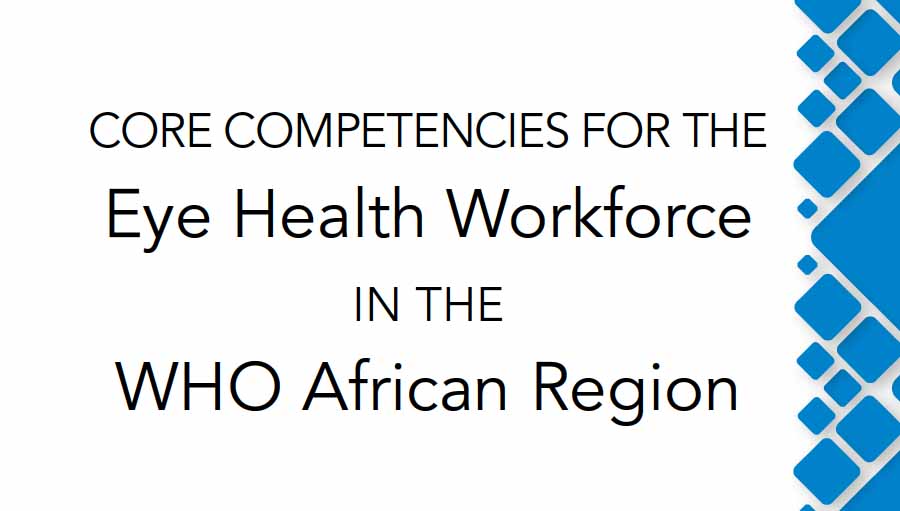Join a powerful, unprecedented alliance for better eye health for all.
Join IAPB-
Choose an alternate language here

Given the shortage of human resources for eye health, and in line with the WHO approach to task shifting or sharing, this policy document is a unique contribution to detailing the competencies required of a range of eye health professionals. Countries can select and tailor these core competencies to meet their specific country needs. The corps of eye health professionals may share some competencies, but others are unique to some cadres. The selected competencies can then be included in educational curricula, enhancing a transformation of task shifting or sharing from often informal delegation and unstructured training to the production of competent eye health professionals who perform tasks that are within their role and allowed under country and professional regulatory frameworks. Team-based education is also in line with the WHO approach to inter-professional education and collaborative practice.
WHO continues to call for high-quality eye health services that focus on integrated, people-centred services. Integrated services ensure that there is a continuum of care that includes both promotive, preventive, palliative and rehabilitative eye care, and diagnosis and management of eye disorders – all coordinated among the different disciplines and providers. Person-centred eye care, for its part, means that the person’s needs and preferences are taken into consideration and that the person is an active participant in the provision of care. To this end, WHO urges that traditional teaching and learning methods be transformed into competency-based education. It also calls for traditional methods of education to shift towards an interdependence that harmonizes education with health systems and supports networking and collaborative practice.
WHO would like to acknowledge the IAPB HReH task teams who did the preliminary groundwork. This Regional Policy was drafted by Dr Michael Gichangi (MoH Kenya). Simona Minchiotti, Renee du Toit and Mwansa Nkowane all contributed to the technical content of the document and provided technical feedback.
The steering group for the overall process was led by WHO and IAPB: Adam Ahmat, Simona Minchiotti, Jennifer Nyoni and Mwansa Nkowane (WHO) in collaboration with Simon Day, Renee du Toit, Ronnie Graham (IAPB) and Luigi Bilotto.
The contribution of Dr Adrian Hopkins, who facilitated at both experts’ consultation and the validation meeting as well as providing the technical proof reading, is acknowledged.